Comparing Notes
A Conversation with Brad Ross
How do composers and other artists survive and work in today’s musical theatre scene? In this series, composers and lyricists, orchestrators, arrangers, and performers will be interviewed about their creative process, and other projects they’ve undertaken.
“If I’m writing a piece that’s an extended work of any kind, it’s got to be rooted in a story,” says composer Brad Ross. His music often serves a narrative, whether the work is a musical, such as The Tales of Custard the Dragon; a concert work, such as A Family for Baby Grand; or a concept album, such as Journeys of Faith: Heroes of the Bible. His work can be heard at BradRossMusic.com.
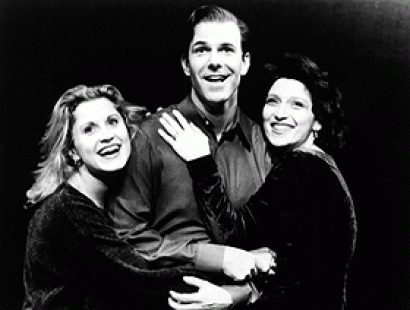
Photo by Carol Rosegg.
Donald Sanborn III: The first time I saw one of your musicals was in 1999, when the York Theatre produced Little by Little. Could the show, which is through-sung in a cabaret idiom, be codified as a “Cabaret Opera?”
Brad Ross: You’re talking about Little by Little as an opera? Please do not call it an opera.
Donald: A cabaret opera?
Brad: If you don’t mind, I would definitely not use the words “cabaret” or "opera" to describe the show. It's a "musical" pure and simple. I feel that the unique thing about Little by Little is that it’s a musical told through songs in which the songs are written to advance the story and characters. I think there’s a perception that Little by Little is [a collection of] songs, and people don’t realize that it’s a tightly knit story about three people. Although the show is almost entirely sung, the sensibility is theatre, not opera. So I’d call it a musical.
Donald: How did the show come about?
Brad: Many years ago, I met [co-librettist] Annette Jolles. I had written a lot of songs, and I had this concept for an evening of my work. I must have played her a whole bunch of my songs, and she created a three-person piece in which this love triangle is formed, and she used all my songs. We thought the piece had potential, and we wanted to develop it further. There were two lyricists I was working with at the time: Ellen [Greenfield] and Hal [Hackady]. So it started to evolve.
Ellen became more deeply involved than Hal, because she started a strong dialogue with Annette in terms of creating the show so that all the new songs were written for the plot and characters. Ellen and I wrote a ton of new songs; Ellen was in constant contact with Annette so that the book, story and songs all worked well together. There were some new songs I wrote with Hal. The songs that people still love and perform all the time are "Popcorn" and "I'm Not".
Donald: What’s an example of a song that existed prior to the musical’s conception?
Brad: “Star Light, Star Bright” was there from the very beginning. I had written music to the traditional nursery rhyme, and recorded it for a children’s album that I did. It has a very important function visually in the show because that’s when the love triangle is set up at the beginning; and we reprised it at the end. So visually, it’s a pivotal moment in the show, and musically it’s pretty.
“Rainbows” is a song I wrote with Hal Hackady, for another project. Hal rewrote some lyrics, but that’s something that was pre-existing.
Donald: You presented Luck , whose book and lyrics are by Mark Waldrop, at the ASCAP workshop. How did the panelists’ feedback affect the show’s evolution?
Brad: We did a chunk of the show at the ASCAP workshop a long time ago. As a result of that, we cut a number and wrote a new song for that moment. There was a song we wrote, called “The Spin of the Wheel.” As a result of that workshop, we replaced that song. I believe when we came into the second workshop, we had written the new song, “This Isn’t Real.” The character of Tam can’t believe that he’s fixing the wheel.
Donald: Why was “The Spin of the Wheel” cut?
Brad: I don’t remember! It’s possible that it was a little static, or didn’t have enough energy to it. “This Isn’t Real” had a lot of energy, advanced the story forward, and encapsulates what’s going on: Tam meets the princess, and he meets the court, but also Mazel is involved. It works in many ways.
I do keep an ear out for everything that’s going on, Broadway world-wise. I try to write music that is tuneful or melodic, even if the melodies are sometimes quirky or different. Sometimes they’re very hummable and accessible.
Donald: There is a difference, in audience expectation, between family musicals and children’s musicals. How does that influence your process in composing a show such as The Tales of Custard the Dragon?
Brad: To me, a family musical is the Disney stuff. Aladdin is “family-friendly,” so parents have no problem bringing their kids. I think Luck is in that realm; it appeals to adults and kids. A children’s musical is a show whose target audience is kids, like Pinkalicious, or shows produced by Theatreworks USA. That’s where The Tales of Custard the Dragon fits. The parents really love it, but it’s basically targeted toward a youth audience.
A long time ago, I found the first of two books by Ogden Nash, called The Tale of Custard the Dragon. It was in a (long-gone) bookstore downtown in NYC, near Astor Place. I saw that book and said, “Oh, my gosh, I can set this to music!” It took me a while, but I set every word to music. It was conceived as a six-minute piece that would be sung with piano, or with orchestra as a concert piece for kids.
Nash wrote a sequel: Custard the Dragon and the Wicked Knight. I decided to set the sequel to music, which was a daunting task because the sequel is much more verbal! Even though I used two of the main (musical) themes from the first book, it was hard to set. But I did it!
Donald: The text is entirely by Nash; no new lyrics were written. Correct?
Brad: The way the piece evolved is that I had set the two books to music—and yes, the text was all Nash’s. Then I had an opportunity, from a previous work that was done at the Kennedy Center, to expand my settings of those two books into a fifty-minute show. We brought on a book writer, Mary Hall Surface, and a lyricist, Danny Whitman. We took the two stories, and the music I wrote, and expanded it into a new show. We inserted additional songs and created a little bit more story. So the basic text by Nash is there—not in its entirety, but a big chunk of it. And the characters, based on the story Nash wrote, are all there.
It’s all sung. You could call it an opera, but it’s got a strong Broadway sound to it. The music I wrote for the Nash’s words is very operatic in a way. But I’m not really an opera composer. I’m a classically trained composer with classical chops, but I don’t write in a “classical” way.
Donald: For you, is the difference between opera and musical theatre that opera is tied to a “classical” sound, while musicals are tied to the “Broadway sound?”
Brad: I think that’s fairly accurate. I’m not super-involved with the contemporary classical world. I do keep an ear out for everything that’s going on, Broadway world-wise. I try to write music that is tuneful or melodic, even if the melodies are sometimes quirky or different. Sometimes they’re very hummable and accessible.
It’s the difference between what Bernstein wrote for Wonderful Town, and what he wrote for Trouble in Tahiti: one is Broadway, and one is opera. The musical inspiration is different for each form.
Donald: Do you have any upcoming projects you’d like to discuss?
Brad: I am doing three projects right now. The first is a kids' show that will be premiered at the Interlakes Summer Theatre in New Hampshire, July 30-August 1, 2016. It's based on a book series called Sparkle Spa, published by Simon & Schuster. The show's book is by the series' author, Jill Santopolo, and the lyrics are by Christiana Cole.
The second project is a musical based on a novel by Jules Verne titled Michael Strogoff, Courier of the Tsar. There will be a reading in New York on October 23, 2016 produced by The Workshop Theater Company. The show is an adventure travelogue set in 1875 Siberia. The richly people realm in which Verne's ripping yarn takes place includes a dashing hero, a damsel in distress, a politically motivated villain, two Western European newspaper reporters, and tribesmen. Book & Lyrics by James Harris.
The third project is titled Just Desserts: A Musical Bake-Off. It's a musical cooking contest! We're looking to do our second reading later in 2016. Book & Lyrics by Barbara Campbell.

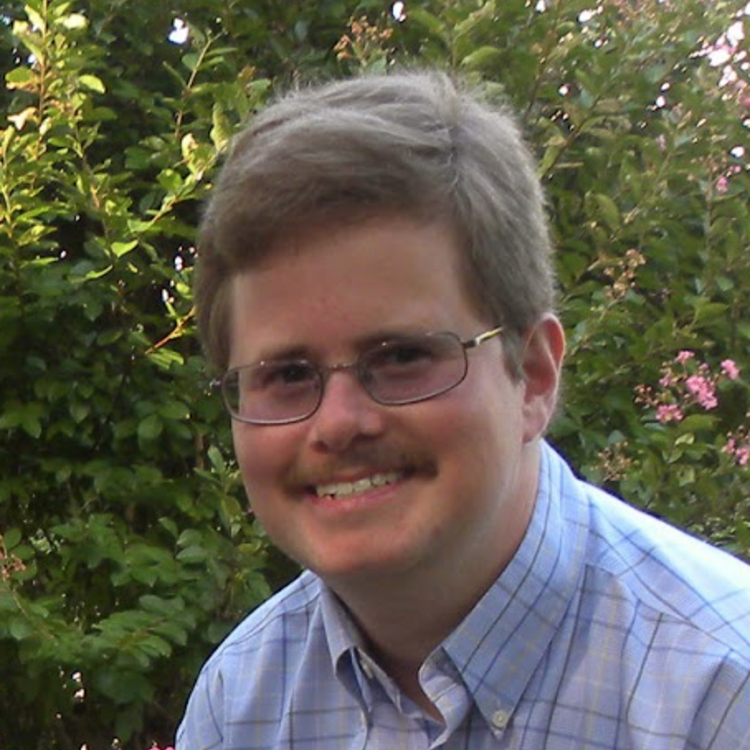

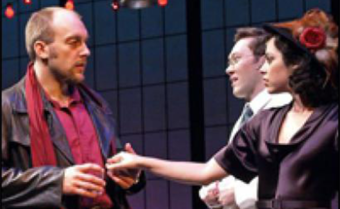


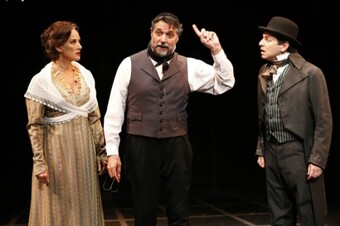
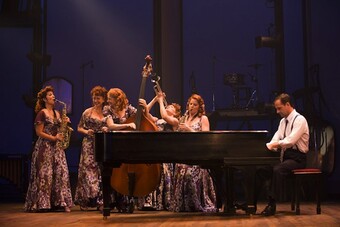

Comments
The article is just the start of the conversation—we want to know what you think about this subject, too! HowlRound is a space for knowledge-sharing, and we welcome spirited, thoughtful, and on-topic dialogue. Find our full comments policy here